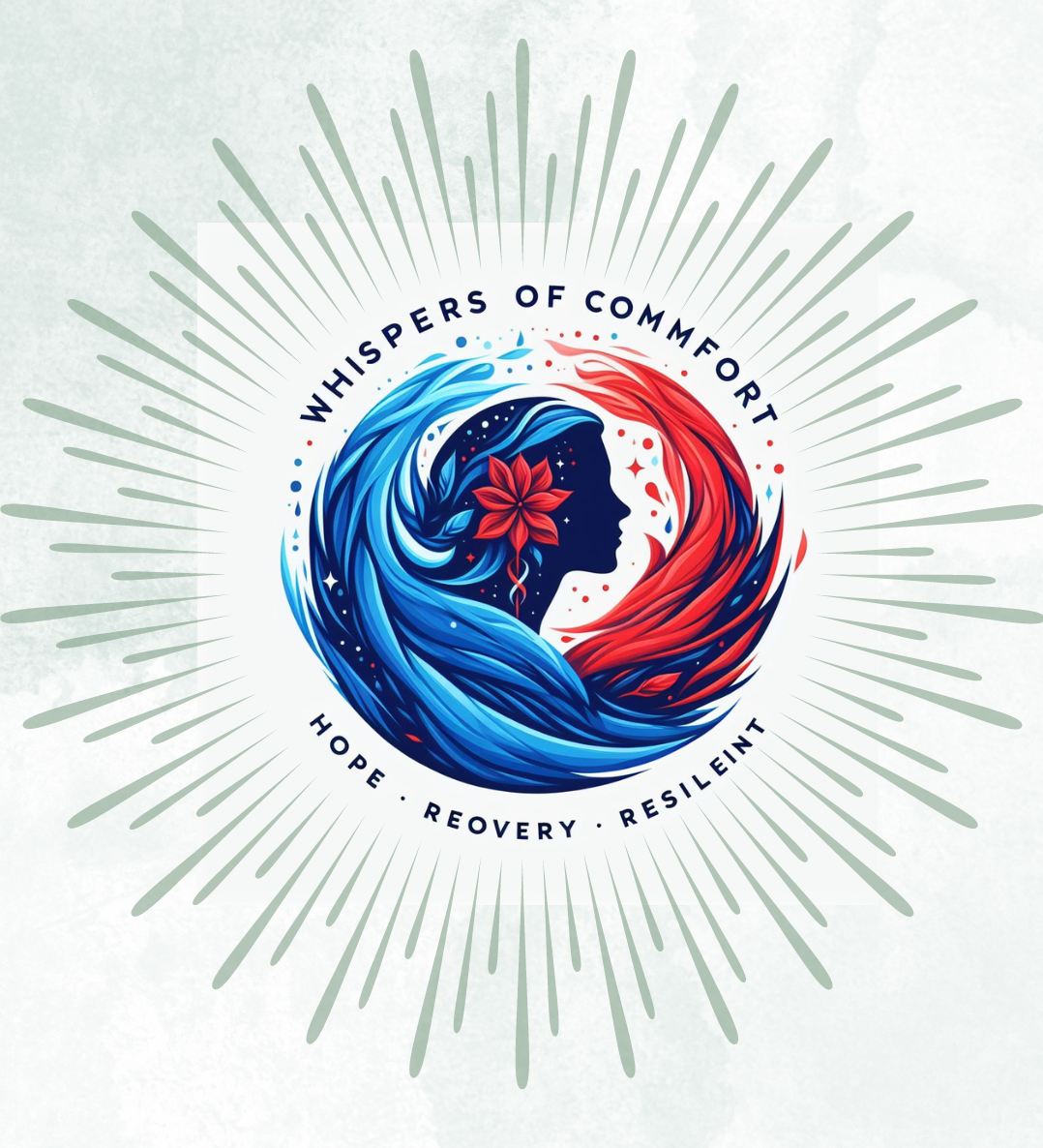
You must know that grief does not change you, it can only be a garden of compassion. Although it is difficult today to see beyond the sorrow, may looking back in memory help comfort you tomorrow.
Grief is a universal experience, a natural response to loss that can deeply affect your mental health. Most of us will recognize the stages of grief, which often include denial, anger, bargaining, depression, and acceptance. While they don’t necessarily occur in order, each stage represents a piece of the complex emotional puzzle we navigate after a loss.
But when grief isn’t processed healthily, it can increase the risk of suicide. Unprocessed grief can overwhelm an individual to the point where they may see no other escape from their pain. This is why it’s crucial to watch for signs of what’s known as complicated grief—a condition where individuals get stuck in an intense state of mourning that impairs their ability to carry on with daily life.
Early intervention is key. Recognizing signs like persistent longing for the deceased, intense sorrow, and preoccupation with the loss or circumstances of the death can be lifesaving. It’s also important to understand how grief doesn’t just impact individuals; it has a ripple effect on personal relationships and community dynamics. In many ways, grief is a collective experience, spreading its shadows across friendships, families, and neighborhoods.
I’m going to talk about this collectively experienced aspect of grief further as it unfolds a crucial understanding into why at-risk students—those who may already be dealing with academic, social, or familial pressures—are particularly vulnerable when faced with loss. Their stories underscore the need for specialized support that acknowledges their unique circumstances and aids them on their journey to healing.
The Vulnerability of At-Risk Students to Grief-Related Suicide

I, Makinde, am going to paint a picture of a group that’s especially vulnerable to the effects of grief: at-risk students. Grieving students are often overlooked, wrestling silently with their emotions while navigating the complexities of their educational environment.
Researchers point out that students dealing with loss are at a higher risk for suicide than their peers. Don’t worry too much about getting lost in the data; I’ll provide a clear view. Statistics show a concerning correlation between the incidence of grief in student populations and an increase in suicide rates, making it a critical issue worth addressing.
Why are students particularly vulnerable? For one, they are in a formative stage of their lives, where coping mechanisms may not be fully developed. Add academic and social pressures, and you’re looking at a potential crisis. In my experience, these pressures can act as a catalyst, turning grief into something deeper and far more dangerous.
Having reviewed case studies and reports, I’ve noticed that students often feel isolated in their grief. Mental health resources in schools must be made available and accessible to provide timely interventions. This includes companies that specialize in educational support, therapists who understand the rigors of the academic environment, and on-campus programs designed to identify and assist students in crisis.
Strategic Approaches to Supporting Grieving Individuals
Supporting grieving individuals goes beyond mere acknowledgement of their loss. It requires a coherent strategy that respects their unique experience while promoting healing and resilience. Counseling and therapy stand as pillars in this strategy. These professional services provide a safe space for individuals to process their emotions and receive guidance on navigating the complexities of bereavement.
But professional help isn’t the only avenue. Peer support groups have proven to be invaluable. One can draw strength from others who have walked similar paths. Through these groups, grieving individuals can share stories, coping strategies, and comfort each other, which can significantly reinforce their emotional healing journey.
It also merits mentioning that we’re living in a digital age where technology bridges gaps that geography and circumstance might create. Online counseling services, virtual support groups, and mobile apps designed to assist with grief management make support accessible to those who might not otherwise seek or receive it.
You’re going to find out about the importance of building resilient communities in the next section. These communities are not only knowledgeable about grief and its tremendous impacts but also well-equipped with the tools to support those at risk of suicide. Isn’t it impressive to think about the kind of collective strength and compassion we can foster with education and dedicated suicide prevention initiatives?
The Power of Education of At-Risk Students to Grief-Related Suicide
I’m here to help you understand that education is a powerful ally in the fight against suicide and a critical element in assisting those at risk. Initiating conversations around grief and the feelings it brings can open doors to healing and prevention. By breaking the silence on this topic, we create a culture that’s not only aware but also proactive in supporting mental health.
Choose something that resonates with you, could be organizing workshops, distributing educational materials, or creating a crisis hotline. Every action contributes to a larger safety net within the community. Engaging in activities that build relationships is vital—it’s about showing individuals they’re not alone in their journey.
Communities can flourish when they invest in comprehensive programs that prioritize suicide awareness. Setting up events, sharing resources, and fostering open dialogue can literally save lives. Promoting these initiatives across schools, workplaces, and online platforms ensures that everyone has access to the information they need.
I hope that you come away from this article feeling empowered to make a difference. Your first attempt doesn’t need to be your last—remember, it’s about ongoing effort and refinement. When we come together with empathy and understanding, fortified by educational resources and strong relationships, we pave the way for greater resilience in the face of grief and loss.
At this juncture, it would be worth saying that, we must lean on those who care about us for strength and support in overcoming this phase of life.
Kindly leave your comments and contributions below.
Are You a Wealthy Affiliate Yet? Affiliate Marketing Success.
Simplified. Turn YOUR Passion, Hobby or Interest into YOUR Success Story! Join Wealthy Affiliate today: https://www.
**Here’s a little transparency: Our website contains affiliate links. We may receive a small commission if you click and make a purchase. Don’t worry, as there’s no extra cost to you. It’s a simple way to support our mission of bringing you quality content.

Hi Makinde,
Thank you for shedding light on this important issue and for your dedication to making a difference. Your work is a reminder that we all have a role to play in supporting those around us who may be struggling.
One question that came to my mind while reading your article was about the role of the community in supporting at-risk individuals. You mentioned the importance of building resilient communities, but I was wondering if you could elaborate more on how communities can be educated and mobilized to support those dealing with grief and at risk of suicide.
It was a deeply moving and insightful read.
Warm regards,
Eric
Hi Eric,
Thank you for your contributions to this article.
Just as you have highlighted, community involvement is very important in supporting at-risk individuals. This can be achieved in ways that include:providing support to those who are vulnerable and those who have made an attempt on their lives; and also rendering support to those who have lost a loved one to suicide. Fighting stigmatization of such individuals would also go a long way, to mention but a few.
Your insight is appreciated, Eric.
All the best.
Makinde
Thank you so much for the work that you did here, raising awareness to a growing concern all over the world. Loss, grief and depression are real, we all go through them regardless of our walks of life and no one is immune to their consequences if they are not handled the right way. I would not agree more with the way you clearly outlined ways to support and educate everyone about the matter. I actually feel that schools all over the world must somehow include dealing with grief and loss as part of the curriculum even from the early stages, life is a precious gift from God and no one deserves to needlessly lose it due to such circumstances. Let everyone be assured that there is always a helping hand in every situation and we must all do our part in every possible way in our various capacities to be our brothers’ and sisters’ keepers.
Hello Elias,
I appreciate your perspective on this subject.
Just as you have rightly noted, loss, grief and depression are real, although they come in different forms and ways. I agree with your assertion that life is precious, and must be protected jealously. I believe some schools have specialised programs, therapist and professionals dealing with loss, grief and depression for their wards and students.
However, schools all over the world that do not have the aforementioned ways of dealing with this important subject, should endeavour to include this in their curriculum at all levels, as you have mentioned.
The sanctity of life must always be protected.
I thank you once again for your insightful contributions.
I wish you all the best.
Makinde